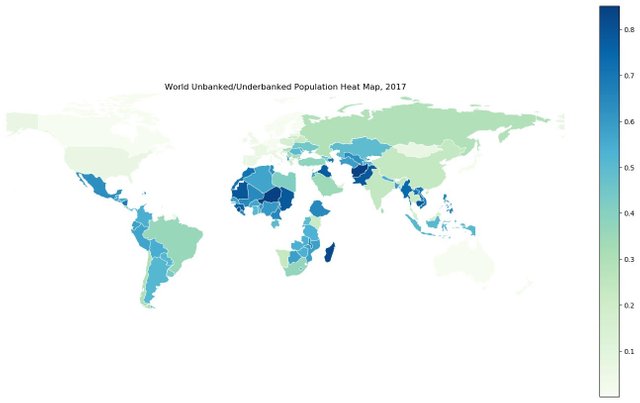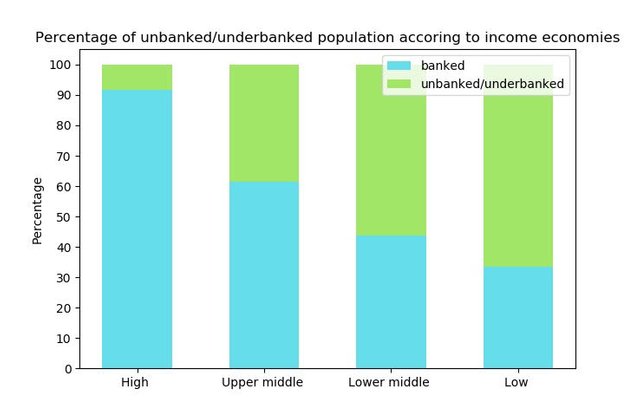Data Science Studies: Global Population Without Access to Financial Services
In the path to solving one of the most profound financial problems in the world, Colendi product team is faced with the challenge of figuring out to produce mature, accurate and various datasets in order to describe and study the population that will eventually be presented with the Colendi benefits. The data in the world can be considered as abundant; however when the task is to compile the data and order it to convey certain implications that will be inserted into the machine learning mechanism of Colendi codes and algorithms, this abundance comes with its handicaps as well as its requirement to be closely attended by people of expertise.
At Colendi we have been looking into this particular challenge for quite a time now, and we have already started structuring the very basics of the datasets and algorithms that will lead to the global financial inclusion movement. Furthermore, we have come to realize that since the project employs decentralization and open source codes as one of the core principles, as the data and the product team, we can put this extensive research out there to give brief summaries of our actions and achievements with the data sets so far.
We are pleased to announce a new series of blog posts, showing the compilation of mass data we find. We intend to increase awareness about the financial inclusion issue and the scale of the problem at hand as well as to contribute to the machine learning, data science, and developer communities we owe so much for creating and shaping our thoughts.
Topics of this particular series will be mostly related to fintech, blockchain, financial services and their respective statistical figure in different environments. We have already drafted the topics of upcoming posts; however we also wish to encourage you to suggest any additional articles so we may include them in our upcoming posts. It is essential to the Colendi team to engage with the fintech ecosystem and professional communities, and through our posts, we hope to establish a two-sided communication while doing our best informing you of the latest situation of the sector.
We kick off the post series with rather a global view on the banking penetration as a whole to give a broader idea of where the world is right now.
Below we present you the “World Unbanked/Underbanked Population, 2017”. It shows the percentage of adults (in this case people who are 15+ years old) who do not and have never had a bank account or mobile payment activity. The illustration is designed as a heat map to demonstrate their distribution according to the countries.

As you can see, the countries which are defined as the “developing countries” by the World Bank are more likely to have more adults with no banking history, hence no access to proper financing. Moreover, there is a lack of banking integration even in countries who are making the headlines daily with their economies. It is easy to grasp that few European countries already dealt with the issue altogether but there is still room for improvement in some of them. The data clearly shows the need for banking in almost all countries with an emphasis on the urgency for the developing countries.

Colendi product and algorithms are being designed by taking into consideration all the factors that we possibly summon and order correctly. We are aware of the fact that the world needs the financial inclusion projects and the need seem to have outgrown the outreach of traditional banking systems up until now. We are working hard to create, produce and study all these data and implement their results in our work. In the upcoming weeks, we will be presenting other data and different illustrations as we keep revealing more data. Keep reading us to discover!
We will keep on working hard for the Colendi Project and keep you updated. Keep following us!